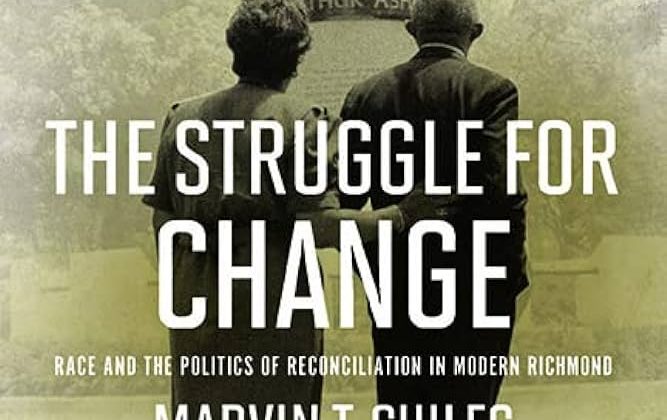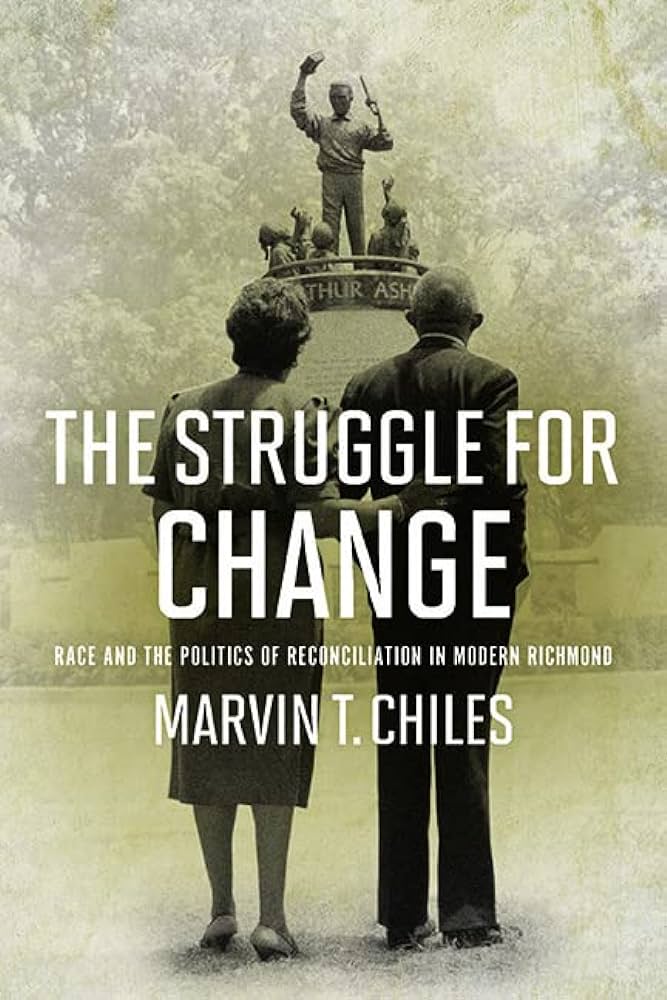

Marvin Chiles is Assistant Professor of African American History at Old Dominion University. This interview is based on his new book, The Struggle for Change: Race and the Politics of Reconciliation in Modern Richmond (University of Virginia Press, 2023).
JF: What led you to write The Struggle for Change?
MC: Being born and raised in Richmond. It’s that simple. I grew up black and lower-middle class in a city that was nationally known for its racial issues between blacks and whites. I experienced very little racial issues growing up. So when I went off to college to become an historian and I learned more about Richmond, Virginia, and Southern history with race, I sought to write a recent history that explained my experience (my and most people’s reality) with Richmond’s reputation. Moreover, I wanted to write a book that used history to inspire racial harmony, especially given that the South and the nation descended into racial strife by the 2010s. I hope the Struggle for Change becomes all of that and more.
JF: In 2 sentences, what is the argument of The Struggle for Change?
MC: Richmond, Virginia underwent decades of racial reconciliation in the decades after the Civil Rights Movement of the 1960s. That movement inspired urbanites across the nation to do the same while also exacerbating the systemic issues left untouched by integration, such as disparities in wealth, housing, and education.
JF: Why do we need to read The Struggle for Change?
MC: Because the story shows how blacks and whites in modern America went from hating one another to working with one another for a common good. This is not fiction, it is a fact that people need to understand, and it is a movement that the races need to continue if we are to generate human flourishing and live out America’s highest ideals of liberty.
JF: Why and when did you become an American historian?
MC: In high school. I had a history teacher at Richmond Christian School named Mr. Young, and an English teacher named Mrs. Steadman. They have long since retired, I believe. They inspired me to tap into my love for the past, as it was the best way to learn about life in the present. Also, Liberty University Associate Professor of History Michael Davis helped as well. We could not have been any different. He was a history buff from Arkansas and I was a black kid from Richmond. But he took me under his wing and helped me better understand the past and why it mattered. Lastly, other Liberty history professors Monica Hardin and the now long deceased Homer Blass saw my enthusiasm and went to bat for me in many ways that I care not to explain. To see people who did not look like me or have my background take an interest in me as a person through the study of the past pushed me to become a historian.
JF: What is your next project?
MC: My next book (under contract with the University of Alabama Press) is about black football and basketball in the Jim Crow South. It argues that these sports groomed black male leadership for the long haul of racial equality between 1892-1970. My subsequent project (under contract with McFarland Publishing, Co.,) is about the rise of modern basketball through the life of legend Marcellus ‘Boo’ Williams, Jr. As you can tell: I am a huge sports fan. I am pivoting towards writing sports histories that have modern-day relevance.
JF: Thanks, Marvin!